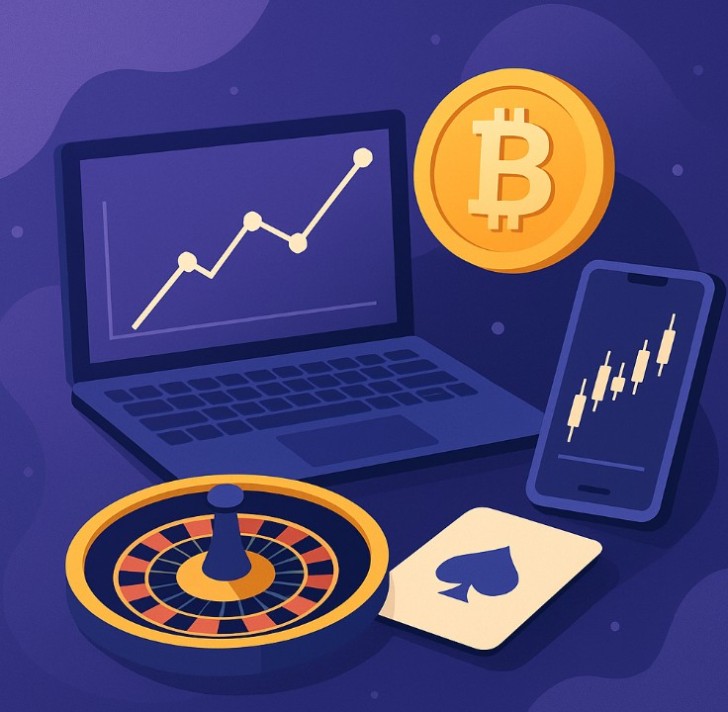The Meeting Point
Online casinos learned a lot from fintech. The smoother the payment flow, the longer people stay. The faster the deposit shows up, the less doubt there is. Both sides build around one idea — remove friction.
A few years ago, it took several steps to open an account or make a deposit. Now it takes seconds. New users can simply 7bit casino login or sign up, move crypto from their wallet, and start playing.
That simplicity isn’t accidental — it’s the fintech approach to design, applied to entertainment.
Crypto Changed the Rules
Blockchain made both industries transparent. In finance, it cut out middlemen; in gaming, it killed the old fear of rigged results. Every transaction and every spin can be verified. Provably fair algorithms became the proof of trust, showing that chance could finally be audited. That gave online casinos a kind of credibility they never had before.
Crypto also solved the biggest headache of international gambling — payments. No frozen cards, no hidden conversion rates. The same Bitcoin that buys a coffee in Berlin can be used at the gaming table in seconds.
Key changes blockchain introduced:
- Transparency — every outcome can be verified.
- Instant payments — no waiting for approvals or bank holds.
- Global access — crypto works across borders.
- Security — data stored and protected by decentralized systems.
The Economics of Play
Fintech redefined how we think about money; gaming redefined how we feel about it. When those two forces merge, a new kind of behavioral economy appears — one based not just on numbers but on feedback loops.
Both traders and players react to the same triggers:
- Progress bars that mimic portfolio growth.
- Rewards and bonuses that echo cashback systems.
- Loss limits that resemble stop-loss orders.
The entire idea of gamification — once a marketing gimmick — has become a financial model. In trading apps, every completed action feels like a small victory; in gaming, every spin or hand carries that same pulse of instant feedback. Both create a rhythm that keeps users engaged, rewarded, and subtly guided toward the next move — a digital echo of the old arcade moment to insert coin before every round.
This design isn’t inherently manipulative — it reflects how digital behavior works. People now expect constant feedback from their devices, and both industries deliver it through measurable progress and perceived control.
Where fintech uses graphs and balance updates, gaming uses sound, light, and motion. Yet the core mechanism — reward prediction — is identical.
As analysts note, this shared behavioral logic could define the next generation of digital platforms. The same algorithms used to predict risk tolerance in trading can be adapted to detect compulsive behavior in gaming.
And if used responsibly, that crossover might become the best argument for self-regulating, AI-assisted platforms that protect users without killing engagement.
Same Users, Different Mindset
The overlap between traders and casino players grows every year. Both chase patterns, manage risk, and rely on intuition. The difference is only in the interface — charts for one, reels or cards for the other.
They also share habits that define the digital economy:
- Tracking performance in real time.
- Managing deposits and limits through dashboards.
- Using analytics to guide decisions.
The psychology is similar: confidence mixed with curiosity, risk tempered by data.
What’s Next
Fintech gave gaming structure; gaming gave fintech emotion. Together they created a new kind of digital habit — fast, transparent, and always on. Once regulators embrace this hybrid model, the distinction between finance and play will blur completely.
The next stage will likely bring:
- Unified wallets where users can trade, stake, and play.
- Cross-industry regulation balancing innovation and protection.
- Data-driven personalization that tailors both trading and gaming.
Soon, the word “casino” might sound outdated. It’ll be just another layer of the financial web — one where people still chase luck, only now through clean code and secure wallets.
 Peter Smith
Peter Smith

 Peter Smith
Peter Smith


